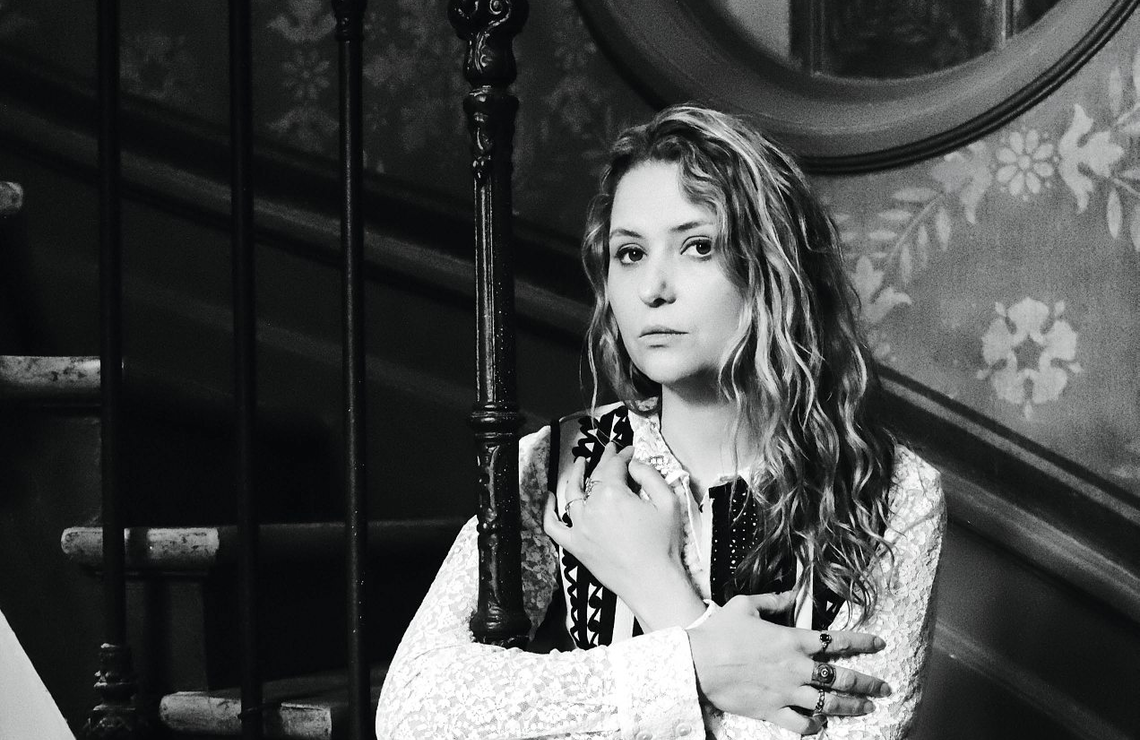
Nawel Ben Kraïem
A voice to be heard
The Franco-Tunisian artist returns, armed not only with a new album, but also a collection of poetry. Blending a love of rhythms and words and political awareness.
Considered one of the most inspired artists of her generation, capable of blending rock, folk and North African sounds, Nawel Ben Kraïem is celebrating 10 years in the music industry this year. It's an opportunity to revisit her career with a new album, ‘Arabic Touch’, a compilation of covers and previously unreleased material, including her interpretation of the poem ‘Jawaz al-safar’ by Palestinian poet Mahmoud Darwich, sung in Tunisian dialect with her characteristic powerful voice and deep timbre. Herself a committed actress and poet, she recently published ‘Le Corps Don’, her second collection of poems about motherhood. We interviewed her during her visit to Paris, following her Tunisian tour and prior to her intimate and warm concert at the New Morning on 2 June, ahead of her jam-packed summer tour on both sides of the Mediterranean.
AM: You're a musician, actress and poet, sometimes even mixing genres, setting some of your poems to music and bringing them to the stage. What is the relationship between poetry and music?
Nawel Ben Kraïem: Writing poetry involves working on the musicality of words and crafting the right images. It's similar to writing a song, because the common root is always the love of words, the way of using them as a material that can take different forms. But for me, setting words to music means collaborating and keeping in mind that a song is meant to be shared. It's a way for me to express myself in order to reach out to others, to seek communion with them. Conversely, I experience poetry as a solitary, introspective moment. Both are born of the pleasure of handling words and telling stories, but through poetry, you explore yourself, you go towards your innermost self and give others access to it.
Is this what prompted you to write your first collection of poems, ‘J'abrite un Secret’, three years ago?
I never dared imagine that I'd be able to publish a book of my poems. I thought a writer was someone with a PhD in literature, and I didn't feel legitimate. It's because during lockdown, I slipped in a few poems during the concerts I gave online, which got publisher Bruno Doucey interested in my work and so he reached out to me. I sent him a lot of the material I'd written, but never turned into songs. In a song, you have to combine two languages: the rhythm of the words and the rhythm of the music, with a chorus, a number of words calibrated to the melody, and so on. And my poems were sometimes a bit too loose... So this first work follows a journey from childhood to adulthood, with some poems that are intimate and others that are more politically aware.
It must have been an enjoyable exercise for you, because your second collection of poems, ‘Le Corps Don’, was published at the end of May. How did the idea for this book come about?
I think that my first book opened up and nurtured a new literary path for me. I had absolutely no intention of publishing anything else, but then I fell pregnant with my second child, and I suffered what is known as an ‘respiratory decompensation’. Many women are prone to health problems that are exacerbated during pregnancy. For me, I experienced a tug-of-war between a very strong emotion at the idea of carrying life, a surge of power, and breathing difficulties, even though I was on oxygen in a hospital room. So I needed to write.
So I wrote this long text, part poetry, part prose, which was the starting point for the book. We made it the centrepiece of the book, so as to draw on the metaphor of a growing womb. The typography and writing are very different from the other poems, which are shorter and more like those in the first book. Let's say they are like little photographs of my inner and outer landscapes.
You talk about motherhood, but also about your ancestors, your two countries, Tunisia and France, and the future...
I think that pregnancy makes us more receptive to the echoes of the past and those of the generation to come. But also to the world in which we live. It's a particular state of being that, like other moments of destabilisation ranging from moving house to death, takes us out of our everyday lives and leads us to question things that are beyond us. And indeed, in that hospital room, I had the impression of being inhabited by grandfathers I never knew, lives that may or may not have existed, echoes of what happened before me, both individually and collectively.
At the end of May, you also released ‘Arabic Touch’, celebrating ten years in the music business, with two previously unreleased tracks and nine covers. What was your selection process?
The title is a my own little nod to the French Touch, in that its content is biased. All the songs are in Tunisian dialect, whereas my work usually mixes French and Arabic. I've always written in both languages, but in the early days I tended to sing in Arabic. So I wanted to start from there, and that helped me in my choice of titles: one or two per album or EP since 2014. But one of them, ‘Kalouli’, which is a bit more punk rock, dates back to 2009, when I was 15 and playing with my first band. Some of the songs have been shortened. I've taken out the intro to ‘Echtah’, for example, which comes from a concept album with poetry, atmospheres and ambient sounds.
In 'Safsari', which was featured on the second soundtrack of the Netflix series ‘AlRawabi School for Girls’, the French text has disappeared.
Yes, it has. In this case, my choice is due to the fact that this extract no longer has the same meaning as it did at the time. I wrote the song in 2012, in a very particular context. I was talking about what was happening at that time in the Arab world. The revolution had made us aware of the influence of Middle Eastern television channels, which had led to a loss of reference points in terms of our Maghrebian or Tunisian identity. The sefseri [traditional Tunisian veil, Ed.] which Algerians call the haïk, is part of our tradition, and it was threatened by the Middle Eastern veil. We were faced with a challenge to our identity, a form of colonisation of our thinking. But now, in France, there is a risk of these words being decontextualised, and I have no desire to see the veil itself criticised. I still left the original version on YouTube, but I wouldn't write it in the same way today.
The two previously unreleased tracks are the uplifting 'Shams' and a poignant musical rendition of Mahmoud Darwich's poem ‘Jawaz al-safar’. What made you choose these two pieces?
‘Jawaz al-safar’ is a poem that is very close to my heart, especially right now. I regularly perform this song on stage and, with what's happening in Palestine, I think it's important to speak out when you have the opportunity to do so, especially when you have a platform. I felt strongly that I needed to include it on the album. This poem sums it all up: “The trees recognise my humanity, the rain songs recognise my humanity, they don't identify me by the colour of my passport.” In other words, the humans who created the passports don't recognise the humanity that nature does. These powerful images tell a simple story.
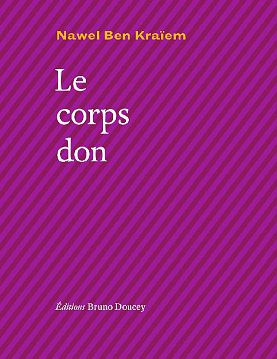
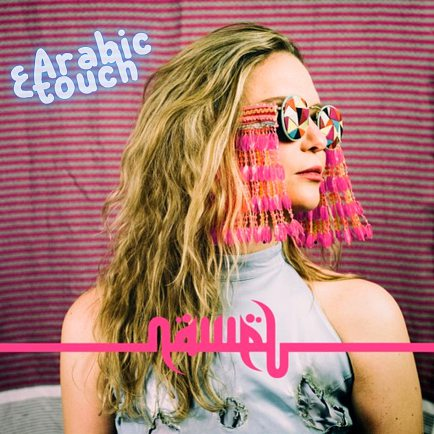
How do people react when you speak out about the Palestinian question on stage, in Tunisia and in Europe?
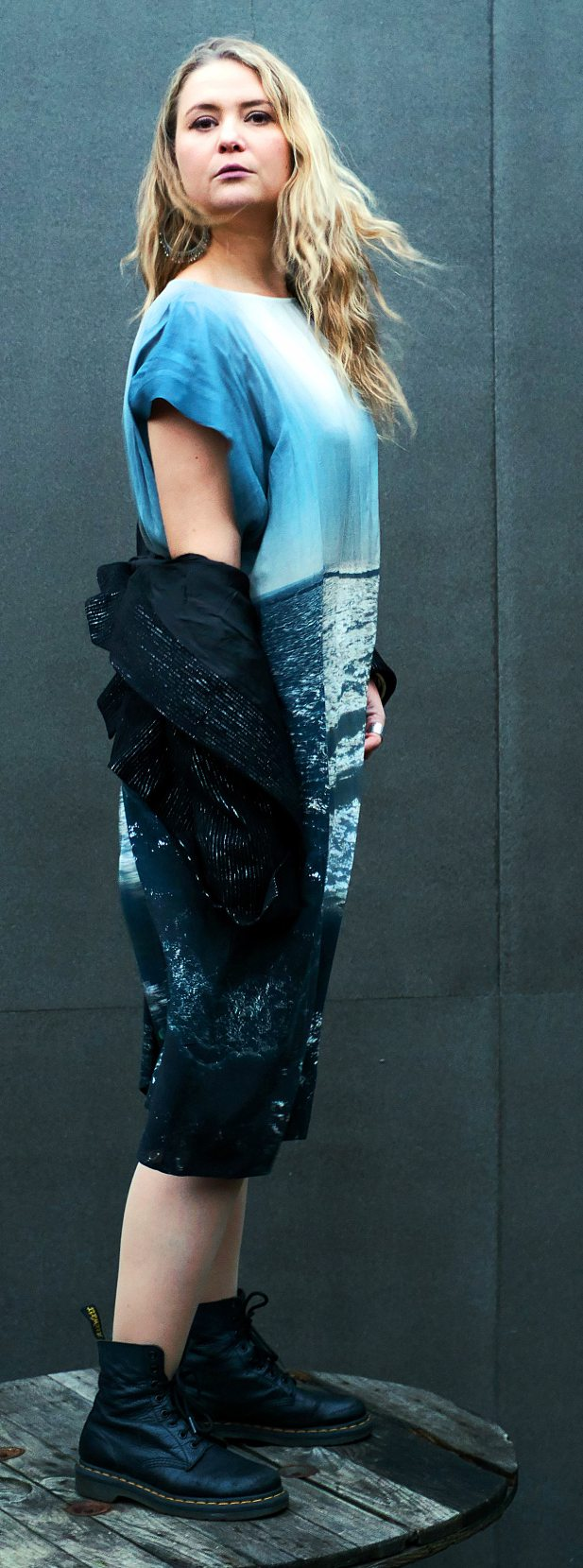
In Tunisia, saying ‘Tahia Filastin’ (Long live Palestine) is by no means something new. We took up the Palestinian cause very early on. I grew up in Tunis, in the days of Ben Ali, when no demonstrations were allowed except those for Palestine. The PLO headquarters were in Tunisia, and Yasser Arafat lived in Tunisia. We were truly bound up with this cause. On the other hand, there is also a large Jewish community in the country. Many of them work in music, and I've worked with many of them. The cultural identity of Tunisia's Jewish heritage exists, and that doesn't prevent us from being aware, politically, that colonisation is taking place in Palestine. Being a country with a colonial past, we are particularly sensitive to this issue, and always have been, not just since 7 October. In France, the situation is very different. In fact, the context is rather strange. Of course we condemn the horrors committed by Hamas on 7 October, and everyone thinks it's only right to do so. However, condemning the horrors perpetrated in a colonial state for many years and the number of deaths that continues to rise, in a completely unreal and inhuman way, should be considered just as normal. We must condemn this. I do it at every concert, but it's clear that something is not right. In France today, demonstrations in support of Palestine are banned and criminalised.
Are there any other causes that mobilise singers and artists in the Maghreb?
The Palestinian cause is undoubtedly the one that continues to unite a lot of people. But there are other issues that also get artists mobilised, of course. I'm thinking particularly about freedom of the press, and other struggles that arose in the early days of the Tunisian revolution, when we were calling for an end to dictatorship. And the situation in Tunisia is worrying once again, as the state becomes increasingly authoritarian. Personally, I'm also revolted by the rise in racism against black people and negrophobia in the country. It's extremely violent, and I feel very strongly about speaking out against it.
Are there a lot of Tunisian women who are as committed and outspoken as you are?
There is a feminist culture in Tunisia. Women are taking action. They have been pioneers in the Arab world, and even in the world. For example, they won the right to vote before French women. As a result, they tend to campaign more readily, including for causes that, on the face of it, are not directly feminist: anti-racism, LGBT struggles and so on. A lot of women in the country are prominent activists, and this paves the way for new generations. The awareness and knowledge that we have, as Tunisian women, of our history allows us to pass on the torch, to perpetuate this activism and to champion the power of being bold.
Talking about strong women, this summer you'll be touring both sides of the Mediterranean, solo and with groups. For example, Les Héritières, a project launched in autumn 2021 to celebrate the pioneering raï singer Cheikha Rimitti. What does she represent for you?
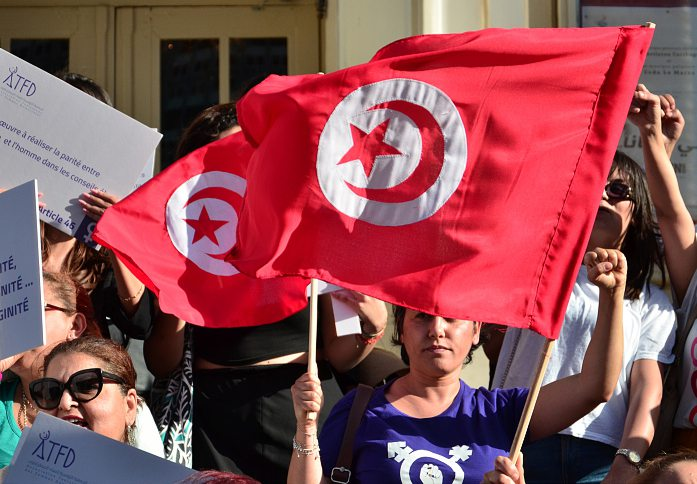
I'm really drawn to these figures who open up new horizons for us, who inspire us. It was important for me to seek out North African women who have written poetry, who have arranged, composed, sung and performed on stage. Cheikha Rimitti was one of the first to do all this. There's a freedom in her songs, both in terms of tone and subject matter. They are as much about the world as they are about society. And so I can consider myself one of her heirs. But she was also robbed. Many of the songs covered by well-known performers during the golden age of Raï have been snapped up by the French industry, while Raï has remained in the shadows. It was important to me, and to other singers [Souad Asla and Cheikha Hadjla, Ed.], to show how much she has contributed to North African music. She reminds me of Janis Joplin: she carried within her a sacred fire of art to the point of exhaling her last breath on stage, just two days away, and she had this way of proudly wearing traditional outfits, using henna... This has always been something symbolic for me, something very strong. And something magical happened with this project. We were only scheduled to play once, to mark the unveiling of the square in the 18th arrondissement of Paris that’s named after her, but it was such a magical experience, like Amrani Abderrahmane's ‘Ya Rayah’, a song by Algerian singer-songwriter Amrani Abderrahmane and one of the most popular songs in the chaabi repertoire of Algerian music. Rachid Taha's cover version is filled with his own energy and musical universe. Sometimes he drew on the rock repertoire, his artistic roots. I'm thinking of what he did with ‘Rock El Casbah’, bringing musicians from the Anglo-Saxon rock scene into the world of raï, and vice versa. This is something I do on a daily basis, mixing imaginary worlds: electric guitars in Bedouin melodies or oud in folk arrangements... I left the conservatoire and instinctively developed this curiosity for cultural heritage, so I had to be self-taught. Seeing someone who took the liberty of exploring North African musical heritage in this way gave me permission, in a way, to do the same. Even if I don't come from a big family of Tunisian maloufs [traditional Tunisian music, Ed.], I can also open up this field of possibilities. And Rachid, on stage, had that shamanic quality that you find in all rockers. He was always able to put energy and emotion first.